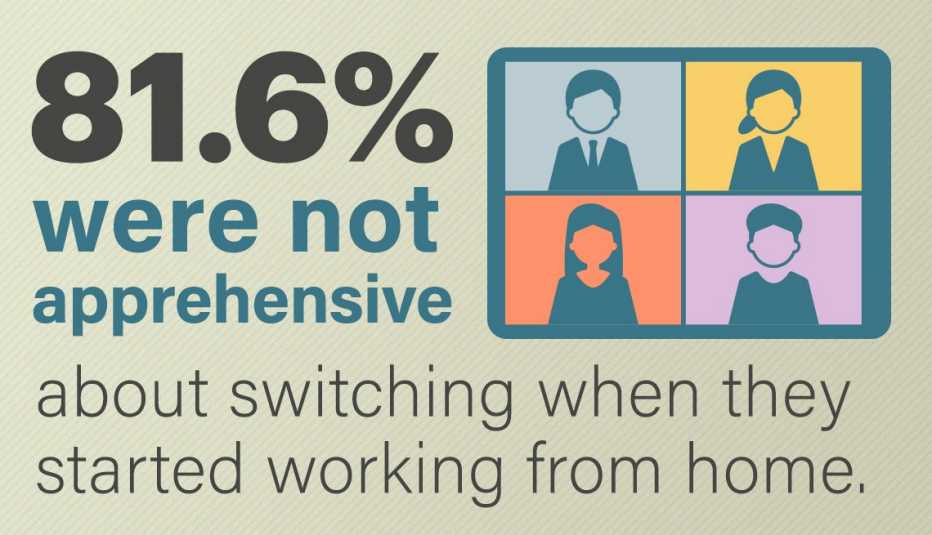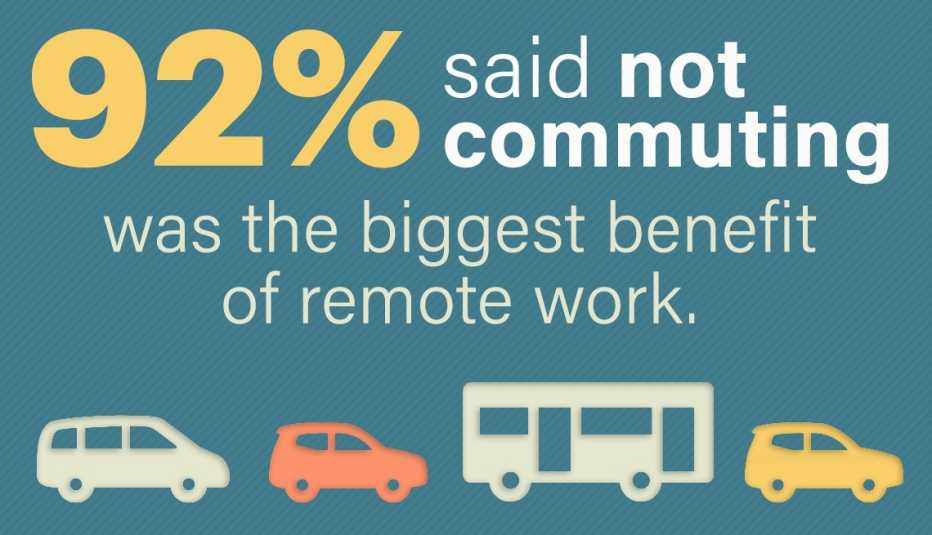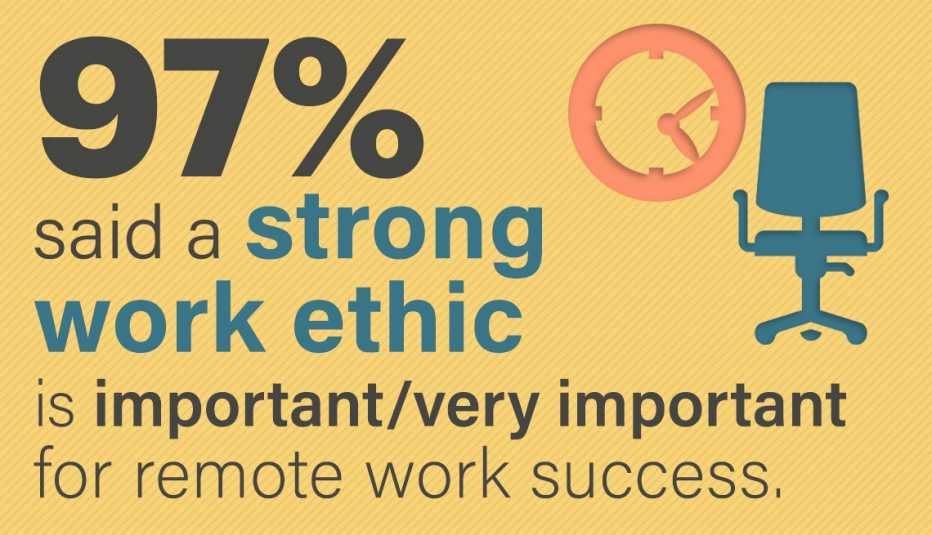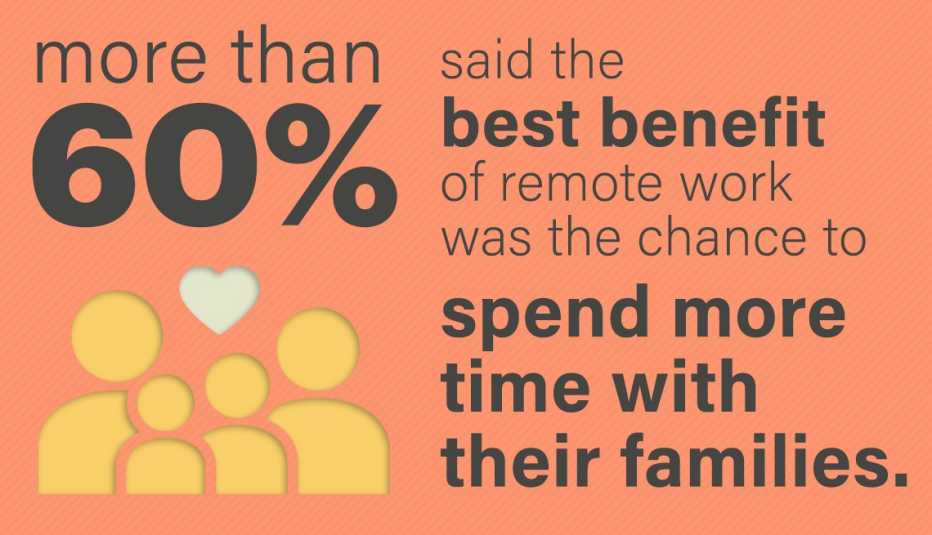Staying Fit


The COVID-19 pandemic created a nationwide experiment in working from home, as many employers temporarily closed their physical offices to deter the spread of the coronavirus. This experiment, while originally meant to be a stopgap measure, could reshape how — and where — people work for years to come.
According to one recent survey, many older adults think a long-term switch could be a perfect fit. Work At Home Vintage Experts (WAHVE) — a company that specializes in placing people age 50 and older in contract positions for remote work — surveyed 252 of its users in May to find out how they felt about changing to remote work. Most of the respondents were working part-time for insurance companies across the United States.


AARP Membership— $12 for your first year when you sign up for Automatic Renewal
Get instant access to members-only products and hundreds of discounts, a free second membership, and a subscription to AARP the Magazine.
By gathering the feedback of a sizable group of people age 50-plus who made the switch, the survey offers some candid insights about how older adults feel about working from home:


While working from home was a big change, more than 80 percent of respondents said they were comfortable making the switch.
- "Never had done it [during] 37+ years in office.... Transition was surprisingly very smooth and welcoming."
- "[I] wasn't sure I would have the dedication to sit at my desk like you have to when you ‘go’ to work, but it actually turned out to be easier than I expected and better than going to an office."
- "I was afraid I'd miss the work environment and being around my peers."


Nine out of 10 (92 percent) of the respondents said that not commuting was the best part about working from home. Among the respondents, 42 percent said that were saving more than an hour per day by not commuting. The next benefits cited most frequently were the flexible work schedule and the absence of office stress.
- "Working from home was something I desired to do for many years. The traffic volume in Charlotte can be horrible at times!"
- "The most important [thing] for me is I don't have to drive. It was the only thing I disliked about going to work."
- "Not having to commute saves time, money, wear and tear on vehicle, insurance costs, and no stress."


Nearly all of those polled (97 percent) said a strong work ethic is essential in order to do your job well from home.
- "It's definitely not for everyone. You have to able to compartmentalize, to act as if you are walking into a physical office in the morning and going home at night."
- "I still dress for work each morning that I work. [It] puts me in a ‘work’ mindset."
- "Having knowledge of the industry is vital; technology is necessary as it is the only means of communication. Work ethic, discipline and self-motivation are part and parcel of what makes this work."


The majority of respondents appreciated having more opportunities to spend time with their loved ones.
- "My husband is housebound and disabled, so I need to be home for him."
- "Even though I would travel to California to see my daughter and family, I just took my laptop and worked while I was there, never missing a payday."
- "For me, [the best benefit] was being home with my 5 dogs. No more dog walker!"

































































More on work
5 Reasons Working From Home Benefits Older Workers — and Their Employers
Telework offers greater flexibility and could save billions of dollars